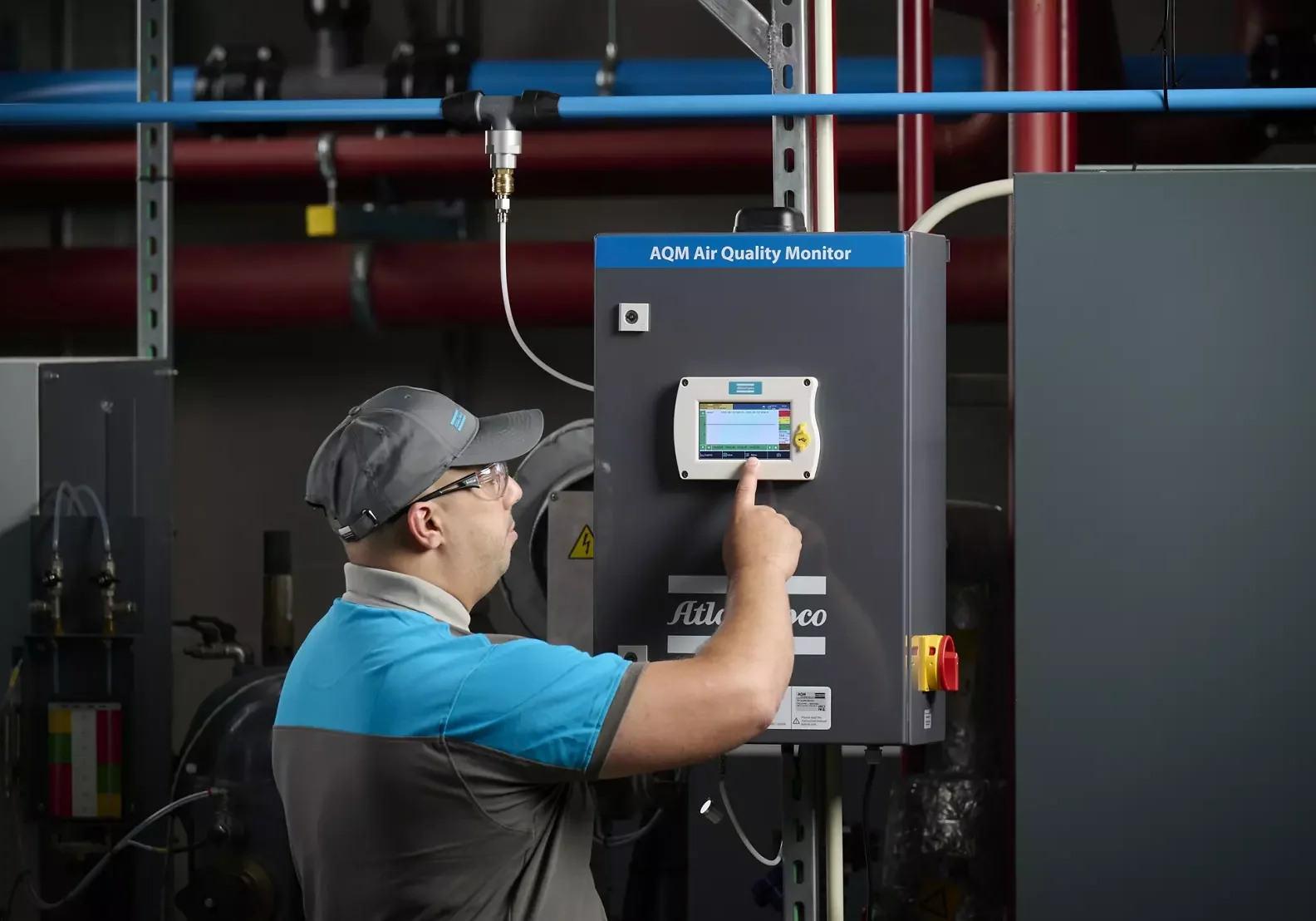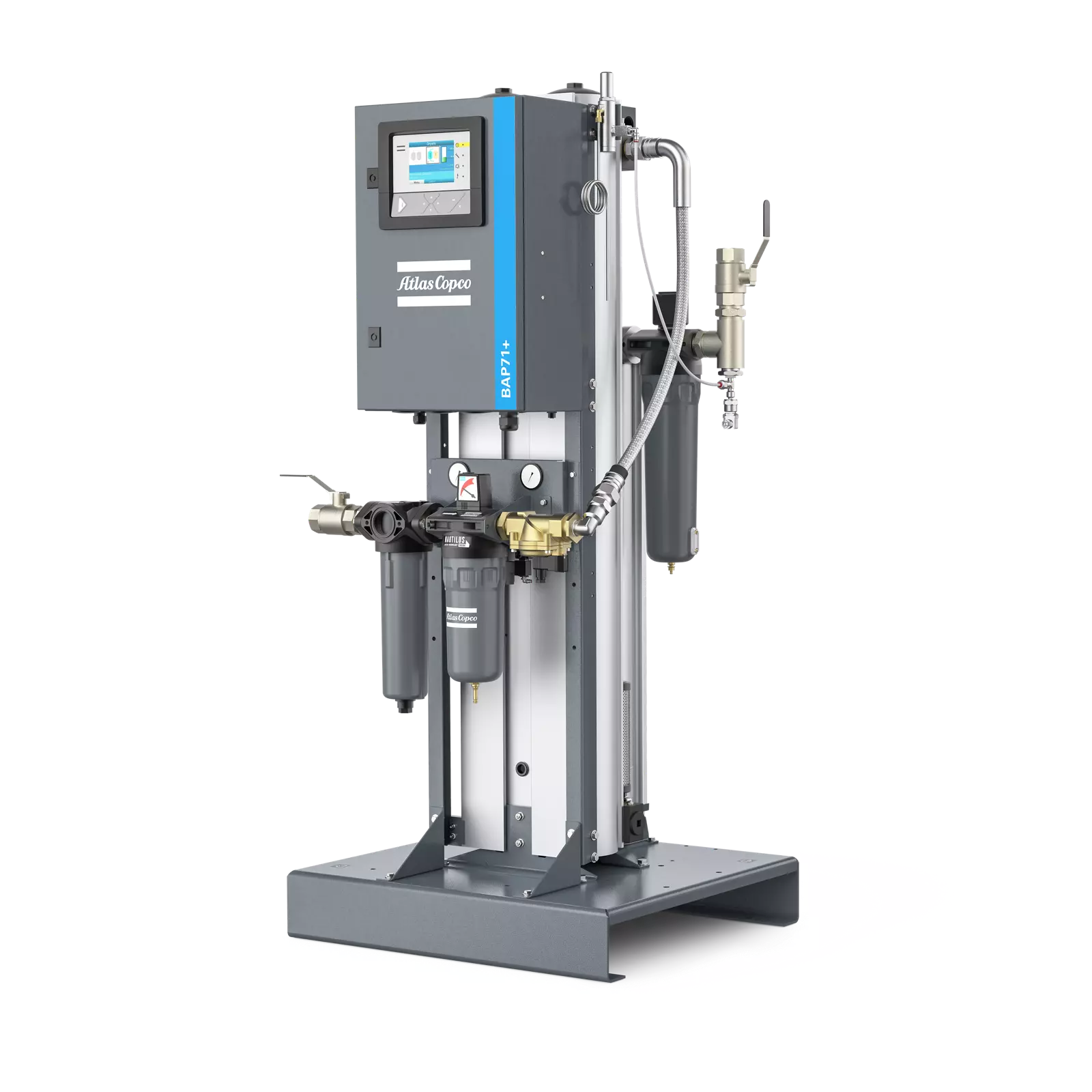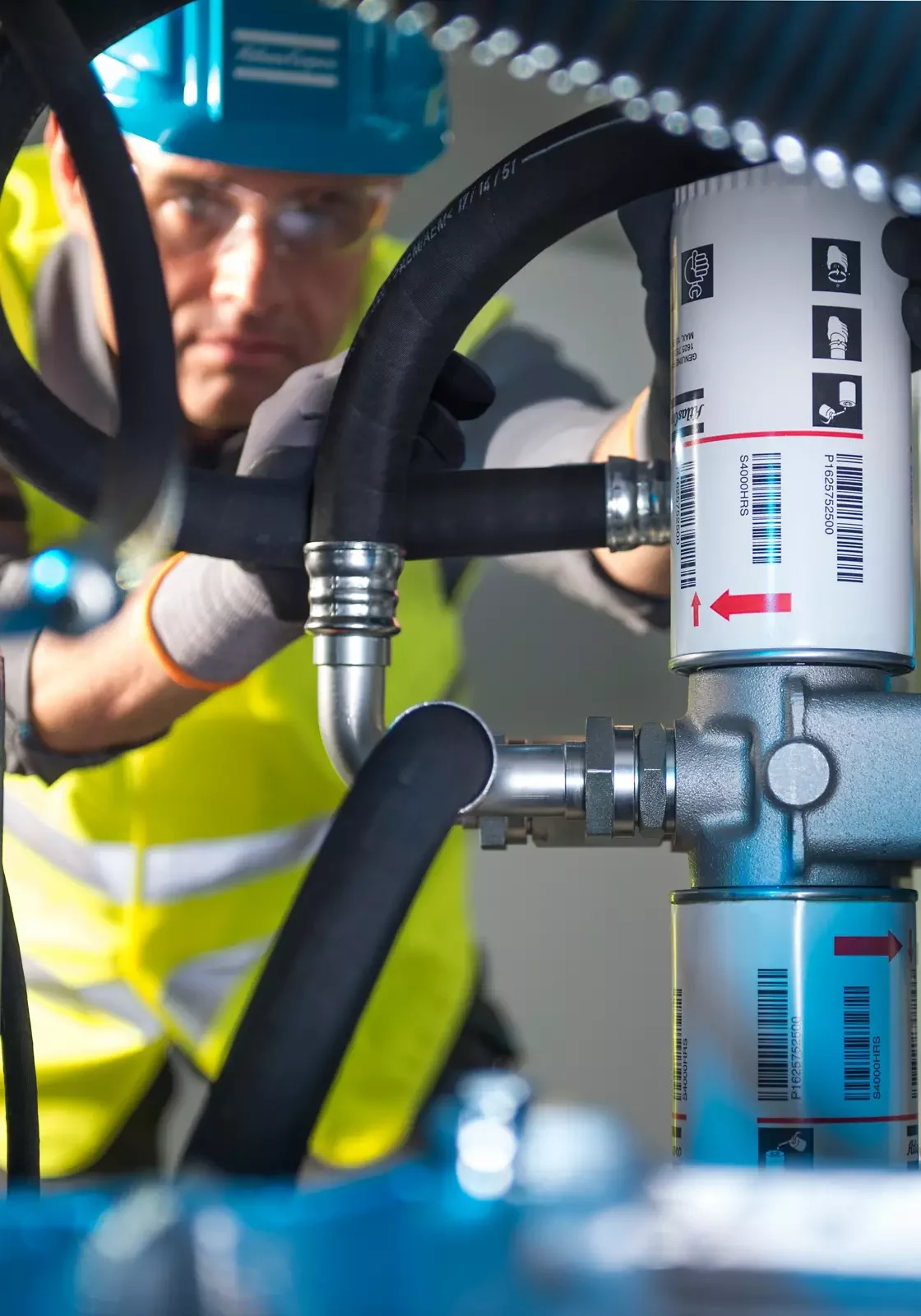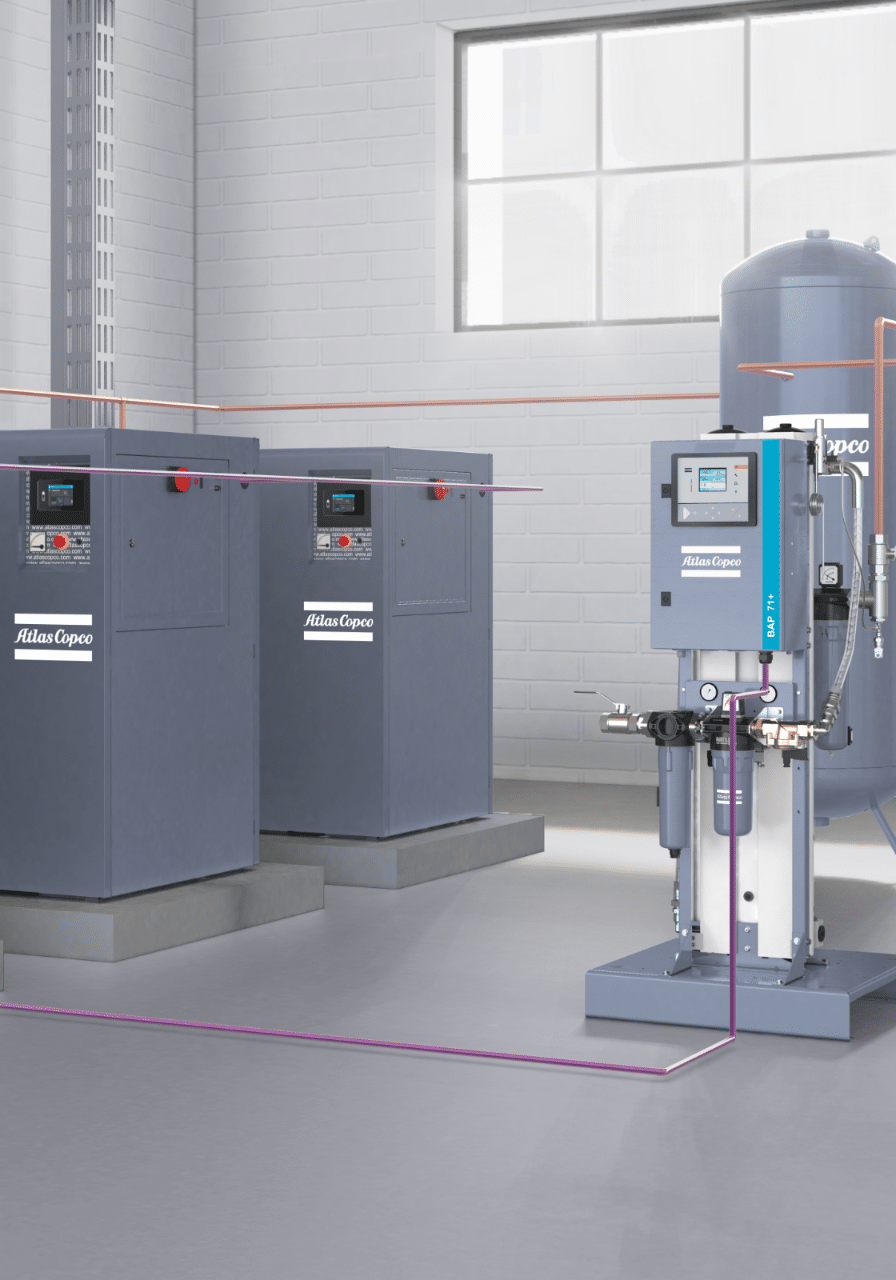Breathing Air Quality Testing for Air Compressors
Is your compressed air system providing clean, safe breathing air for workers?
The air flowing through your compressors could contain dangerous contaminants which may be present in a workplace atmosphere, putting your team at risk.
Control Gear's Breathing Air Quality Testing for Air Compressors
Regular breathing air testing is not just a regulatory requirement – it is essential for protecting lives, preventing equipment damage, and avoiding costly penalties.
Control Gear delivers fast, accurate, quality-assured breathing air quality testing for air compressors.

Why Breathing Air Testing Matters

- Worker Safety: contaminated breathing air can cause immediate health problems and long-term diseases. Regulations state that air for breathing shall not contain contaminants at concentrations that exceed exposure limits for a defined list of pollutants.
- Legal Requirements: UK regulations (BS EN12021:2014) mandate regular air testing to ensure compliance. COSHH (Control of Substances Hazardous to Health) regulations identify the maximum exposure limits for harmful substances. Contaminants must be kept to as low a level as possible.
- Business Protection: proper testing ensures the quality of compressed air, prevents equipment damage, reduces downtime, and avoids penalties.
- Cost Efficiency: regular compressed air quality testing is more affordable than dealing with health incidents or equipment failure.
- Peace of Mind: knowing your compressed breathing air meets safety standards provides confidence for both employers and employees.
The Hidden Dangers in Compressed Air Systems
Many people do not realise that compressed gas for breathing is not automatically safe. Your system might be pushing out invisible contaminants, which may cause toxic or harmful effects, harming or even killing workers. Regulations require UK employers to conduct breathing air quality tests to ensure a safe working environment.
According to the British Safety Council, respiratory protective equipment-related incidents cause approximately 15 workplace fatalities each year in the UK, with many more suffering serious health complications from contaminated air exposure.
‘The quality of breathing air supplied by compressors is often overlooked until something goes wrong — and by then, it is too late.’ Control Gear
Risk Assessment of Common Contaminants That Threaten Worker Safety
| Contaminant | Source | Health Risk | Maximum Allowed (BS EN12021:2014) |
|---|---|---|---|
| Carbon Monoxide (CO) | Engine exhaust, combustion | Poisoning, death | 5 ppm |
| Oil Mist/Vapour | Compressor lubrication | Lung disease, respiratory issues | 0.5 mg/m³ |
| Water Vapour | Ambient air, condensation | Bacterial growth, freezing | Pressure-dependent (typically <25 mg/m³) |
| Carbon Dioxide (CO₂) | Ambient air, combustion | Dizziness, headaches | 500 ppm |
| Particulate Matter | Dust, rust, pipe debris | Lung irritation, system clogs | Various classes based on particle size |
| Oxygen (O₂) Imbalance | System issues | Suffocation or fire risk | 21% ±1% (volume) |
Why Regular Breathing Air Quality Testing Is Non-Negotiable

Protecting Your Equipment Investment
Poor air quality does not just harm people – it damages your equipment, too. A study by the British Compressed Air Society found that:
- Systems with properly tested air quality last 30–40% longer.
- Maintenance costs decrease by up to 25% with regular testing.
- Filter replacement frequency drops significantly when air quality is monitored.
Industries That Need Regular Compressed Air Testing
Several sectors rely on absolutely pure gas for breathing:
- Healthcare: for medical air systems and patient care
- Diving: for underwater breathing apparatus
- Fire and Rescue: for emergency response teams
- Chemical Manufacturing: for work in hazardous environments
- Pharmaceutical Production: for clean room operations
- Oil and Gas: for confined space entry work
How Often Should You Test Your Breathing Air?
The frequency depends on your specific industry and usage, but generally:
- Every three months: minimum standard for most applications
- Monthly testing: recommended for high-risk environments
- After maintenance: any time the system is opened or modified
- When location changes: if compressors are moved to new environments
According to data from the British Compressed Air Society (BCAS), facilities that implement air testing at least every three months reduce workplace air-related incidents by 87% compared to those testing annually.
The Testing Process: What to Expect
Our comprehensive breathing air testing follows a proven four-step process:
1. Site Assessment
- Evaluate your entire compressed air system
- Identify potential contamination sources
- Map testing points for comprehensive coverage
2. Sample Collection and Testing
- Use specialised equipment to capture air samples
- Analyse for all regulated contaminants
- Compare results against current standards
3. Compliance Reporting
- Provide detailed documentation of all findings
- Indicate pass/fail status for each contaminant
- Document certification for regulatory compliance
4. Recommendations and Support
- Suggest specific improvements if needed
- Implement regular testing schedules
- Offer monitoring solutions for continuous protection

Cost vs Benefit: Why Testing Makes Financial Sense
Some businesses hesitate to invest in regular air testing, but consider the cost comparisons below.
| Average cost of quarterly testing £800–£1,200 per year |
|
As these figures from the HSE and insurance industry data show, prevention is dramatically more cost-effective than dealing with the consequences of poor air quality.
Warning Signs That Breathing Air May Need Testing
Do not wait for scheduled testing if you notice:
- Workers reporting unusual odours in the air supply
- Increased moisture in the system
- Unexpected filter discoloration
- Unusual compressor noise or performance
- Oil spots anywhere in the system
- Worker complaints of headaches or respiratory issues
Our Certified Quality Assurance
At Control Gear, our air testing services are backed by:
- ISO 9001, 14001, and 45001 accreditations
- F-Gas certified engineers
- Specialised testing equipment calibrated to current standards
- Comprehensive knowledge of UK and international regulations, including COSHH and BS EN12021:2014

Take Action Today
Do not gamble with worker safety or regulatory compliance. Call us at 01443 843126 or book online to schedule your comprehensive breathing air testing today.
Our team services the entire South Wales and West region with no hidden costs and flexible scheduling to minimise disruption to your compressed air supply and operations.
Frequently Asked Questions
What happens if my air fails the quality test?
We will immediately identify the source of contamination, recommend corrective actions based on a risk assessment, and perform a follow-up test after fixes are implemented to ensure compliance with regulations.
Can I perform air quality testing myself?
While simple moisture tests can be done in-house, proper contaminant testing requires special air quality testing equipment and trained technicians to ensure that the breathing air results stand up to regulatory scrutiny.
Do you provide emergency testing services?
Yes. We conduct breathing air quality tests for critical situations with same-day service when possible.
How quickly can you perform testing?
For most customers in South Wales and the West (including the Cardiff, Newport, Swansea, Bristol, Stroud, and Swindon areas), we can schedule compressed air testing within 3–5 business days.
Why Work With Us?







